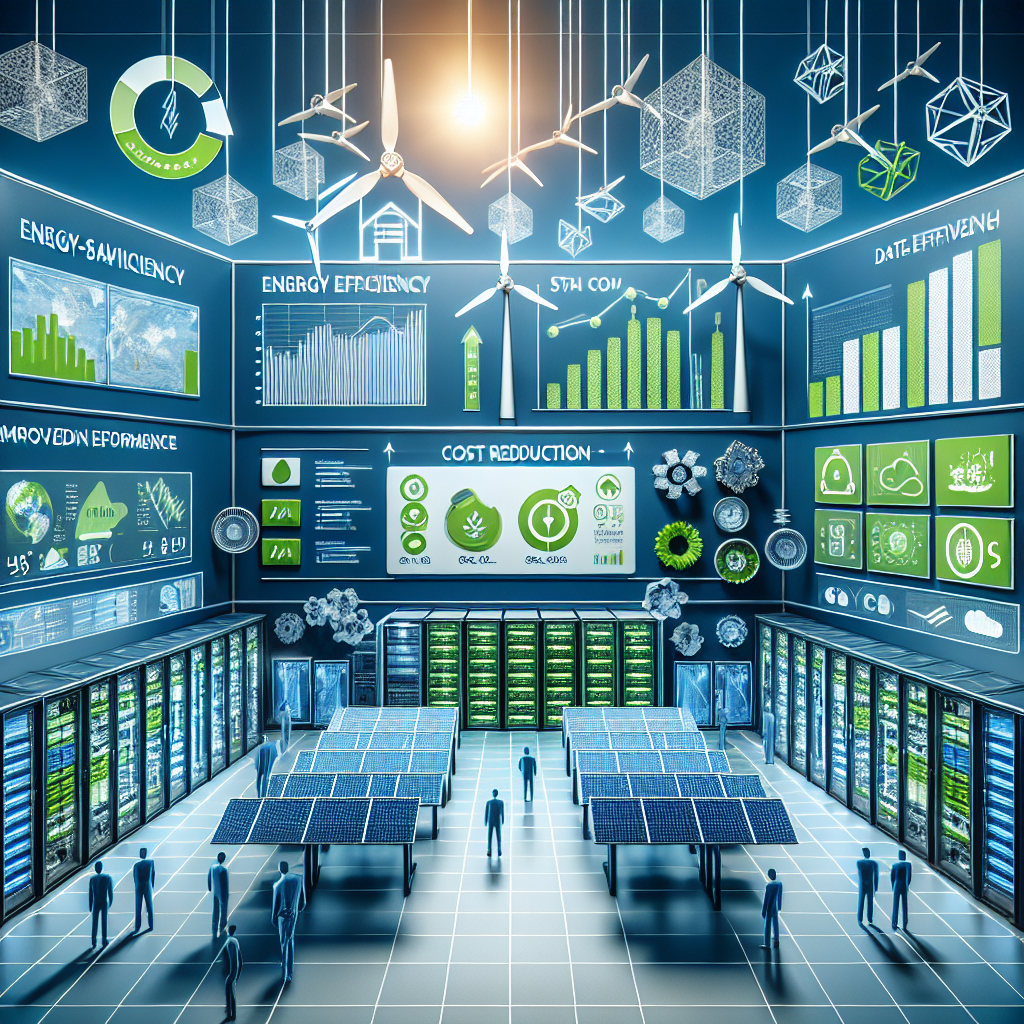In today’s digital age, data centers play a crucial role in storing, processing, and delivering vast amounts of information. However, with the increasing demand for data storage and processing power, data centers are consuming more energy than ever before. This has led to rising electricity costs and concerns about the environmental impact of these facilities. In order to address these issues, data center operators are looking for ways to maximize energy efficiency and reduce operating costs.
One of the key strategies for improving data center energy efficiency is optimizing the cooling system. Cooling accounts for a significant portion of a data center’s energy consumption, as servers generate a significant amount of heat during operation. By implementing techniques such as hot aisle/cold aisle containment, using economizers to take advantage of outside air temperature, and implementing advanced cooling technologies like liquid cooling, data center operators can reduce the energy required to keep servers at optimal operating temperatures.
Another important factor in maximizing data center energy efficiency is implementing virtualization and consolidation strategies. Virtualization allows multiple virtual servers to run on a single physical server, reducing the overall number of servers needed and therefore the energy consumption. Consolidation involves combining multiple smaller servers into larger, more efficient servers, further reducing energy usage. By optimizing server utilization and reducing the number of physical servers needed, data center operators can significantly lower energy costs.
In addition to cooling and server optimization, data center operators can also improve energy efficiency by investing in energy-efficient hardware and equipment. This includes using energy-efficient servers, storage devices, and networking equipment, as well as implementing power management technologies like dynamic frequency scaling and power capping. By choosing energy-efficient hardware and equipment, data center operators can reduce energy consumption without sacrificing performance.
Furthermore, data center operators can also consider renewable energy sources to power their facilities. Installing solar panels or wind turbines on-site can help offset energy costs and reduce reliance on traditional power sources. Additionally, participating in renewable energy programs or purchasing renewable energy credits can help data centers reduce their carbon footprint and contribute to a more sustainable energy future.
Overall, maximizing data center energy efficiency requires a comprehensive approach that involves optimizing cooling systems, implementing virtualization and consolidation strategies, investing in energy-efficient hardware, and exploring renewable energy options. By taking steps to improve energy efficiency, data center operators can reduce operating costs, minimize environmental impact, and ensure the long-term sustainability of their facilities.


Leave a Reply